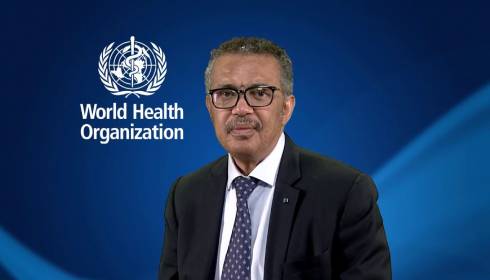
Hospital-acquired infections kill 10% of those infected: WHO
Rajeev Choudhury
One out of every ten people who contract hospital-acquired infections (HAI) will die from their HAI, the world health Organisation (WHO) said recently.
A new report released by the UN health agency said that simple infection prevention and control (IPC) measures can reduce the risk of such infections by as much as 70%.
The report, titled ‘Global report on infection prevention and control’ was released on May 6, 2022, in Geneva noted that out of every 100 patients admitted to the acute care hospitals, seven in high-income nations and 15 in low-income nations are will acquire at least one healthcare-associated infection (HAI) during their hospital stay.
“The COVID19 pandemic has exposed many challenges and gaps in IPC in all regions and countries, including those which had the most advanced IPC programmes,” WHO Director-General Dr Tedros Adhanom Ghebreyesus, said.
“It has also provided an unprecedented opportunity to take stock of the situation and rapidly scale up outbreak readiness and response through IPC practices, as well as strengthening IPC programmes across the health system,” he added.
Providing the first-ever global situation analysis of how IPC programmes are being implemented in countries around the world, the new WHO report addresses the impact and cost-effectiveness of infection prevention and control programmes and the strategies and resources available to countries to improve the HAI situation in the countries.
The report also highlighted the harm that antimicrobial resistance and HAI cause to patients and healthcare workers.
“Over 24% of patients affected by healthcare-associated sepsis and 52.3% of those patients treated in an intensive care unit die each year,” the report read.
In the event of antimicrobial-resistant infections, the deaths increased two to threefold, the WHO report added.
What is more worrying is that the survey conducted by the WHO in 2019 revealed that just four of the 106 countries surveyed had all minimum requirements for IPC in place at the national level and just 15.2% of healthcare facilities met all of the IPC minimum requirements.
Noting that many countries are demonstrating strong engagement and progress in scaling-up actions to put in place minimum requirements and core components of IPC programmes, the WHO report said that sustaining and further expanding this progress in the long term is a critical need that requires urgent attention and investments.
Calling on every nation to boost investments in IPC programmes, Dr Tedrod said, “Our challenge now is to ensure that all countries are able to allocate the human resources, supplies and infrastructures this requires.”